-
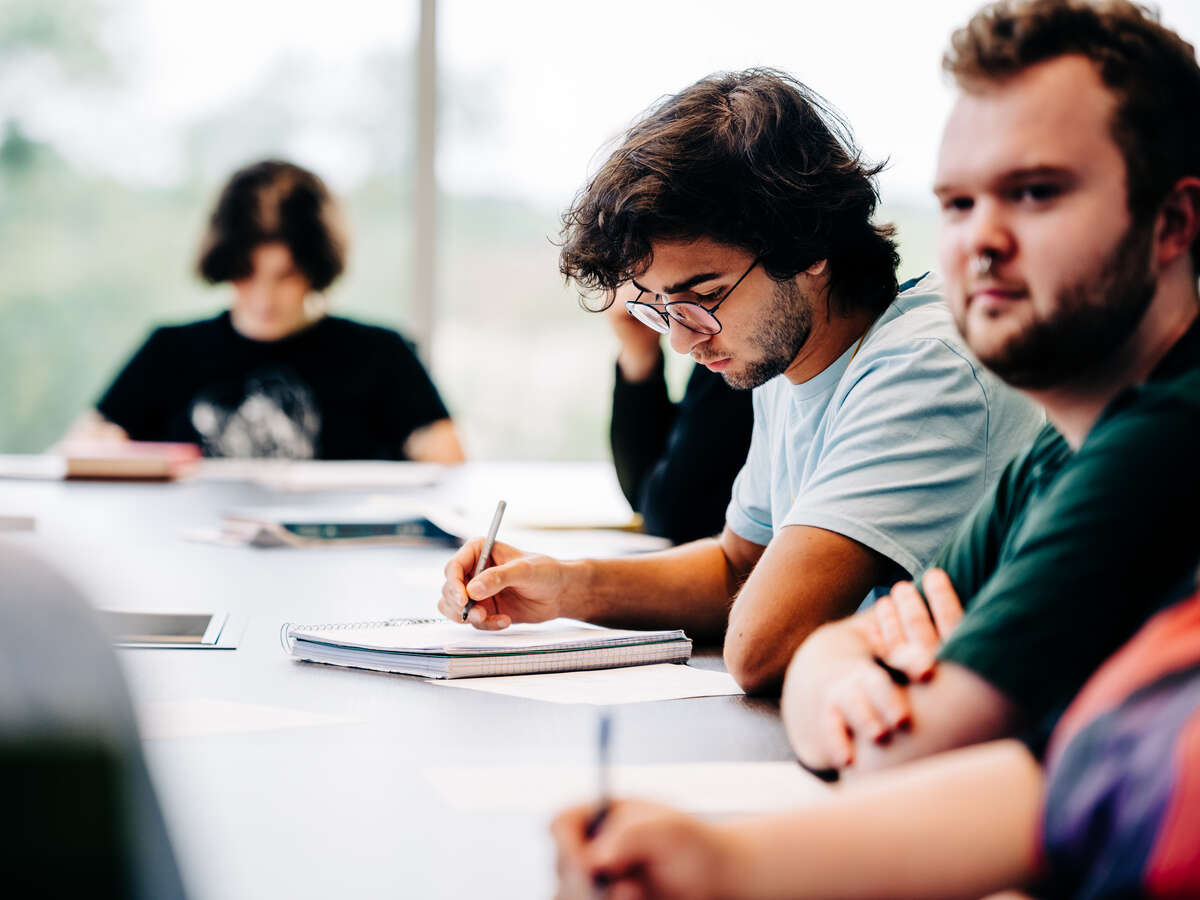 UAB expands horizons for Blazers this fall with new degree pathsTen new graduate certificates are available this fall to Blazers interested in continuing their education.
UAB expands horizons for Blazers this fall with new degree pathsTen new graduate certificates are available this fall to Blazers interested in continuing their education. -
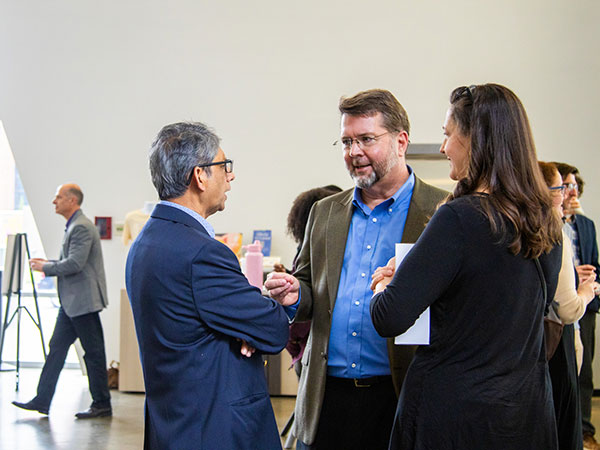 College of Arts and Sciences faculty members published 17 books in 2024College of Arts and Sciences faculty gathered at the Abroms-Engel Insitute for the Visual Arts on April 21 to celebrate 19 authors.
College of Arts and Sciences faculty members published 17 books in 2024College of Arts and Sciences faculty gathered at the Abroms-Engel Insitute for the Visual Arts on April 21 to celebrate 19 authors. -
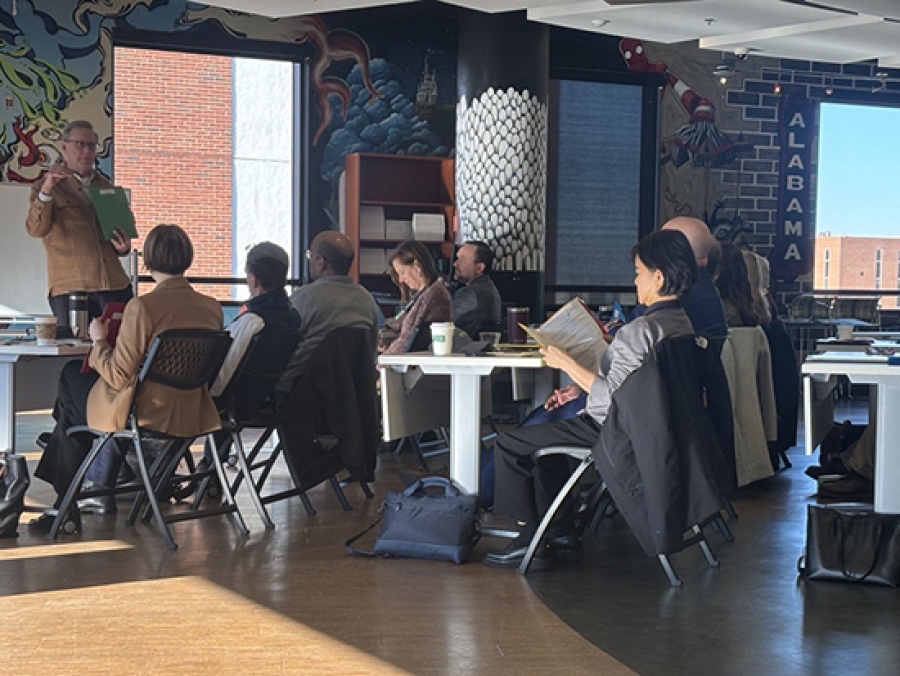 Chairs Leadership Academy prepares faculty for challenging rolesThe yearlong program began in June 2024 with a cohort of 18 faculty leaders. It is designed to equip department chairs with the skills necessary to excel as leaders on campus.
Chairs Leadership Academy prepares faculty for challenging rolesThe yearlong program began in June 2024 with a cohort of 18 faculty leaders. It is designed to equip department chairs with the skills necessary to excel as leaders on campus. -
 Carlisle shares impactful stories through filmsOliver Carlisle, an anthropology major with minors in women and gender studies and film, is preparing to graduate from the University of Alabama at Birmingham in December 2024. Throughout their time at UAB, Carlisle embraced opportunities to combine multiple disciplines and apply that interdisciplinary learning into real, tangible outcomes.
Carlisle shares impactful stories through filmsOliver Carlisle, an anthropology major with minors in women and gender studies and film, is preparing to graduate from the University of Alabama at Birmingham in December 2024. Throughout their time at UAB, Carlisle embraced opportunities to combine multiple disciplines and apply that interdisciplinary learning into real, tangible outcomes. -
 CAS Graduate Research Day spotlights research and the changing landscape of graduate educationOn November 20, 2024, the College of Arts and Sciences (CAS) hosted its first-ever Graduate Research Day at the University of Alabama at Birmingham’s Alumni House.
CAS Graduate Research Day spotlights research and the changing landscape of graduate educationOn November 20, 2024, the College of Arts and Sciences (CAS) hosted its first-ever Graduate Research Day at the University of Alabama at Birmingham’s Alumni House. -
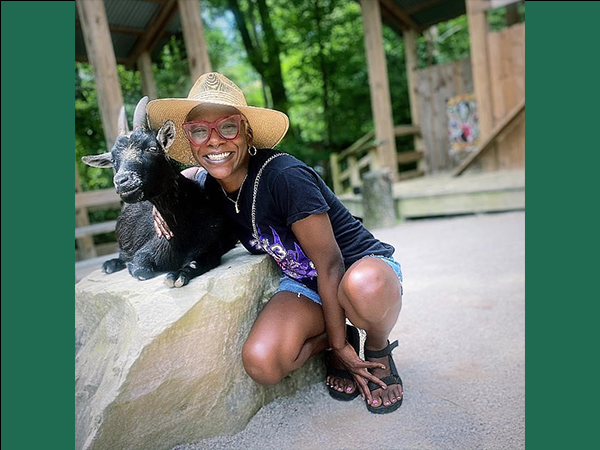 Anthropology student using skills in the communityThe following is a guest piece written by anthropology student Kizzi Frisby. The College of Arts and Sciences occasionally invites students to author reflections on their experiences in the classroom and in the community.
Anthropology student using skills in the communityThe following is a guest piece written by anthropology student Kizzi Frisby. The College of Arts and Sciences occasionally invites students to author reflections on their experiences in the classroom and in the community. -
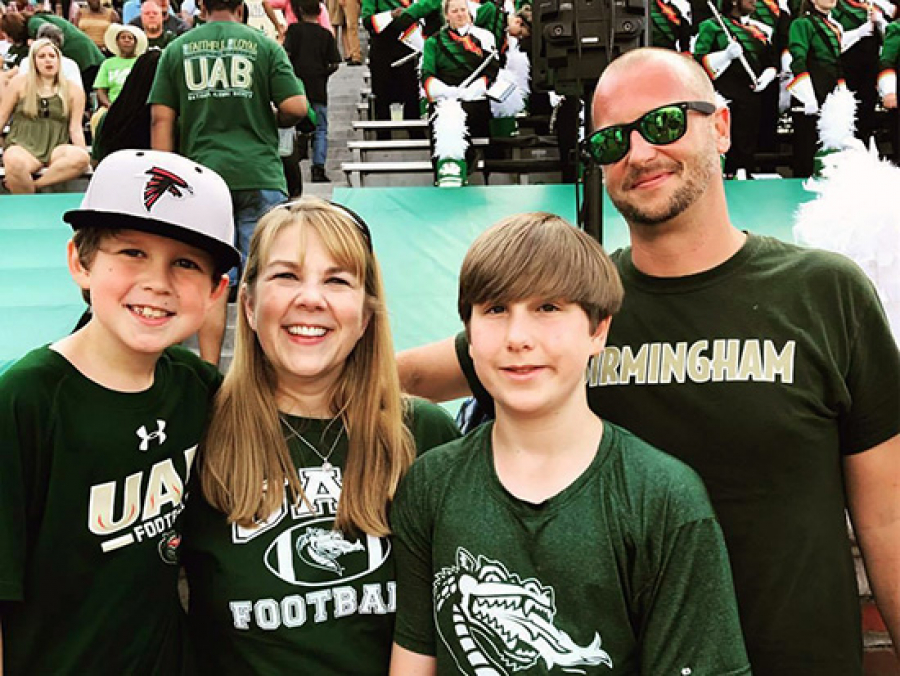 More than music: Alumni couples, legacy families in the UAB Marching BlazersMeet the couples who met in the Marching Blazers, and the students marching this year whose alumni parents are passing along their Blazer spirit.
More than music: Alumni couples, legacy families in the UAB Marching BlazersMeet the couples who met in the Marching Blazers, and the students marching this year whose alumni parents are passing along their Blazer spirit. -
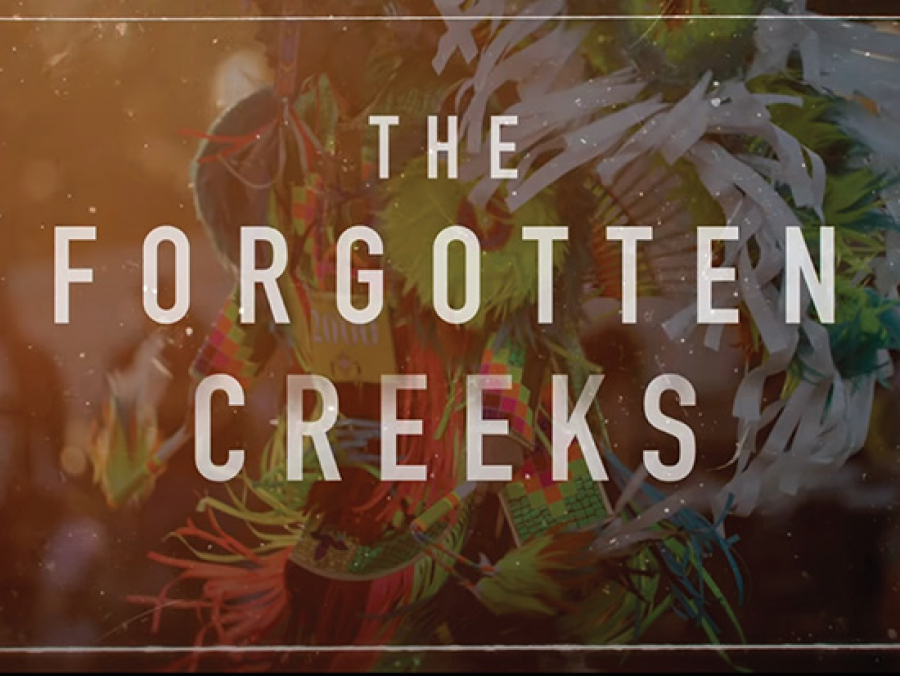 Learn about Native American history at the documentary screening of ‘The Forgotten Creeks’ and a panel discussionThe event will feature a reception and a documentary screening followed by a panel discussion.
Learn about Native American history at the documentary screening of ‘The Forgotten Creeks’ and a panel discussionThe event will feature a reception and a documentary screening followed by a panel discussion. -
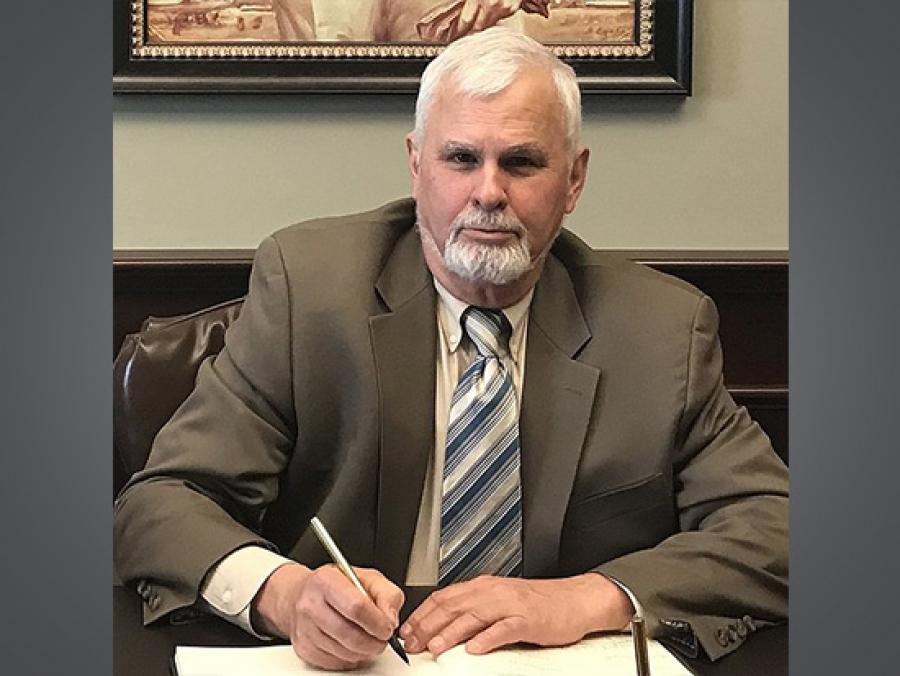 Hear how new technologies impact the evolution of peacemaking from a renowned ethicist, Oct. 18Decorated ethicist George Lucas will address the hopeful uses of emergent military technologies to promote stability, reduce human suffering, and counter the prevailing conflict and war tendencies.
Hear how new technologies impact the evolution of peacemaking from a renowned ethicist, Oct. 18Decorated ethicist George Lucas will address the hopeful uses of emergent military technologies to promote stability, reduce human suffering, and counter the prevailing conflict and war tendencies. -
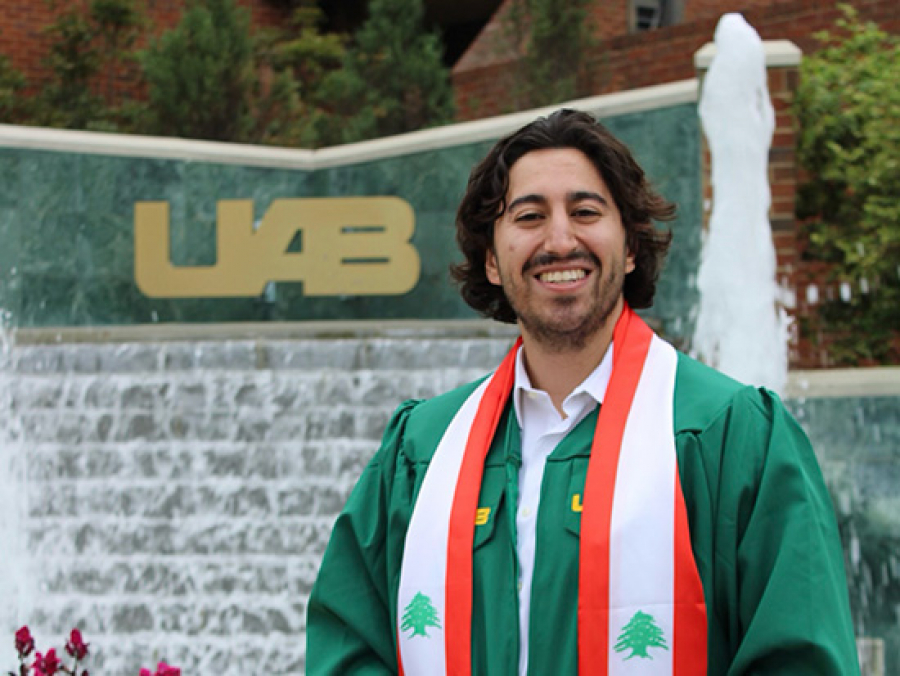 A love for languages: UAB graduate integrates his interest in ancient manuscripts and cutting-edge tech to promote language learningAugmenting his interest in cultural exploration through language learning and exploring the past through an anthropological lens, Ali Kesserwani is set to pursue a master’s degree at Georgia Tech.
A love for languages: UAB graduate integrates his interest in ancient manuscripts and cutting-edge tech to promote language learningAugmenting his interest in cultural exploration through language learning and exploring the past through an anthropological lens, Ali Kesserwani is set to pursue a master’s degree at Georgia Tech. -
 College of Arts and Sciences awards artificial intelligence grantIn March 2024, the College of Arts and Sciences announced its first-ever competition for Artificial Intelligence (AI) Interdisciplinary Team Awards. In March 2024, the College of Arts and Sciences announced its first-ever competition for Artificial Intelligence (AI) Interdisciplinary Team Awards.
College of Arts and Sciences awards artificial intelligence grantIn March 2024, the College of Arts and Sciences announced its first-ever competition for Artificial Intelligence (AI) Interdisciplinary Team Awards. In March 2024, the College of Arts and Sciences announced its first-ever competition for Artificial Intelligence (AI) Interdisciplinary Team Awards. -
 Explore graduate programs in UAB’s College of Arts and SciencesThe University of Alabama at Birmingham’s College of Arts and Sciences is home to a wide range of undergraduate degrees and certificates. In fact, the College has been considered the foundation of undergraduate education at UAB for over a decade.
Explore graduate programs in UAB’s College of Arts and SciencesThe University of Alabama at Birmingham’s College of Arts and Sciences is home to a wide range of undergraduate degrees and certificates. In fact, the College has been considered the foundation of undergraduate education at UAB for over a decade. -
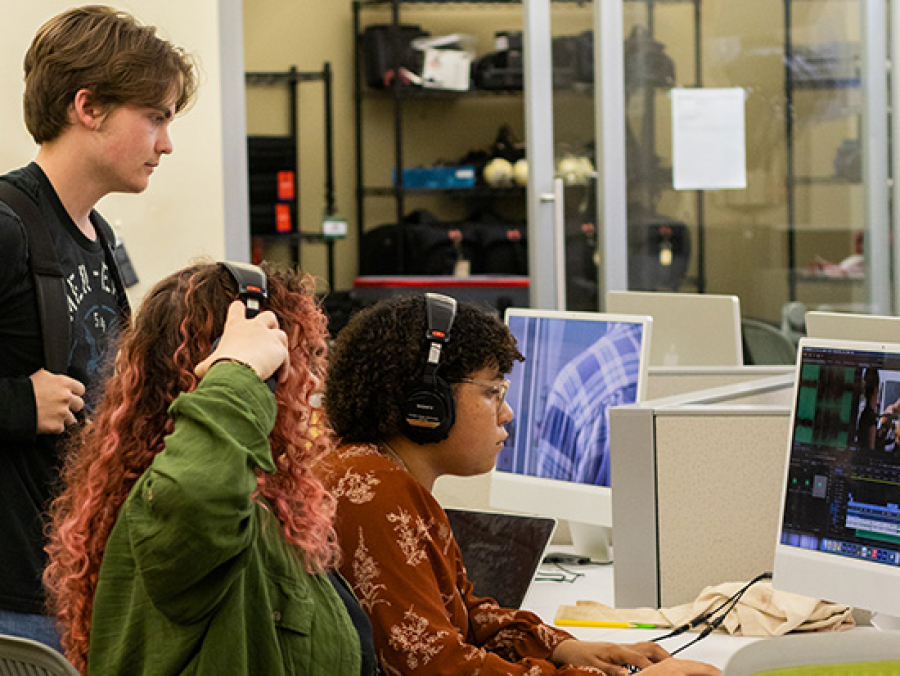 Documentaries created by UAB media studies students to premiere at the McWane Science Center IMAX Theatre, April 24UAB Media Studies students learn how to make documentary films focusing on communities and issues they care about in a semester.
Documentaries created by UAB media studies students to premiere at the McWane Science Center IMAX Theatre, April 24UAB Media Studies students learn how to make documentary films focusing on communities and issues they care about in a semester. -
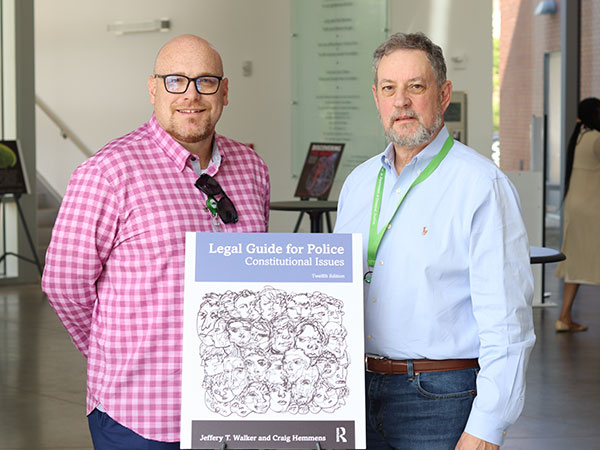 Celebrating CAS Authors: 20 faculty members in the College of Arts and Sciences published books in 2023Twenty faculty members across multiple departments in the University of Alabama at Birmingham’s College of Arts and Sciences wrote or edited 23 books last year. Twenty faculty members across multiple departments in the University of Alabama at Birmingham’s College of Arts and Sciences wrote or edited 23 books last year.
Celebrating CAS Authors: 20 faculty members in the College of Arts and Sciences published books in 2023Twenty faculty members across multiple departments in the University of Alabama at Birmingham’s College of Arts and Sciences wrote or edited 23 books last year. Twenty faculty members across multiple departments in the University of Alabama at Birmingham’s College of Arts and Sciences wrote or edited 23 books last year. -
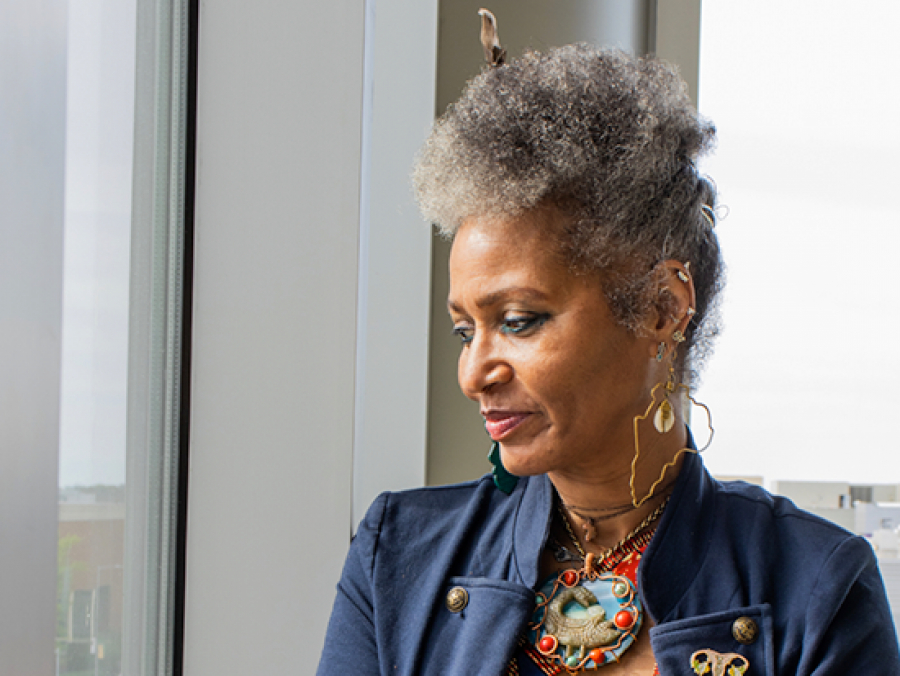 Graduate student set to represent UAB on the General Anthropology Division BoardChadra Pittman was invited to serve two years as a student representative on the General Anthropology Division Board.
Graduate student set to represent UAB on the General Anthropology Division BoardChadra Pittman was invited to serve two years as a student representative on the General Anthropology Division Board. -
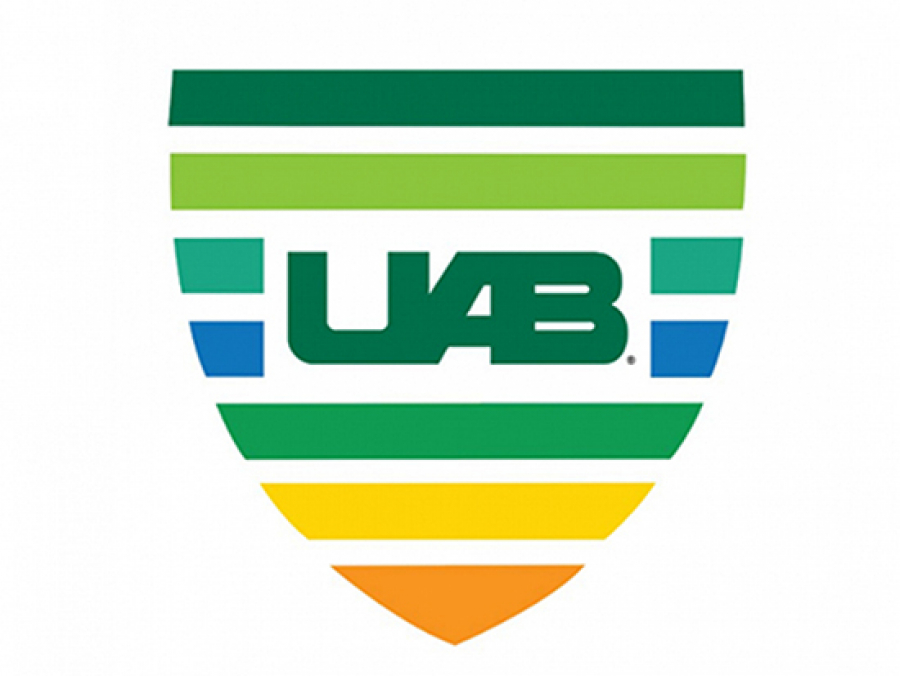 3 chosen as UAB VIPs for first-quarter 2024Vern Bush, Kevin Davis and Brittany Martin are the first-quarter 2024 honorees of the UAB Values in Action Program. Nominations for second-quarter 2024 honorees are open through April 24.
3 chosen as UAB VIPs for first-quarter 2024Vern Bush, Kevin Davis and Brittany Martin are the first-quarter 2024 honorees of the UAB Values in Action Program. Nominations for second-quarter 2024 honorees are open through April 24. -
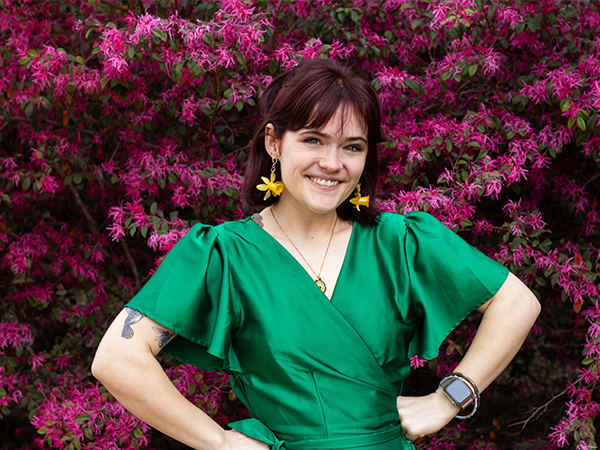 Franks wants to make a differenceUAB Alumna Abigail Franks shares how her college experience has impacted her life and career. Abigail Franks grew up in Somerville, a rural Alabama town with a population of approximately 800 people.
Franks wants to make a differenceUAB Alumna Abigail Franks shares how her college experience has impacted her life and career. Abigail Franks grew up in Somerville, a rural Alabama town with a population of approximately 800 people. -
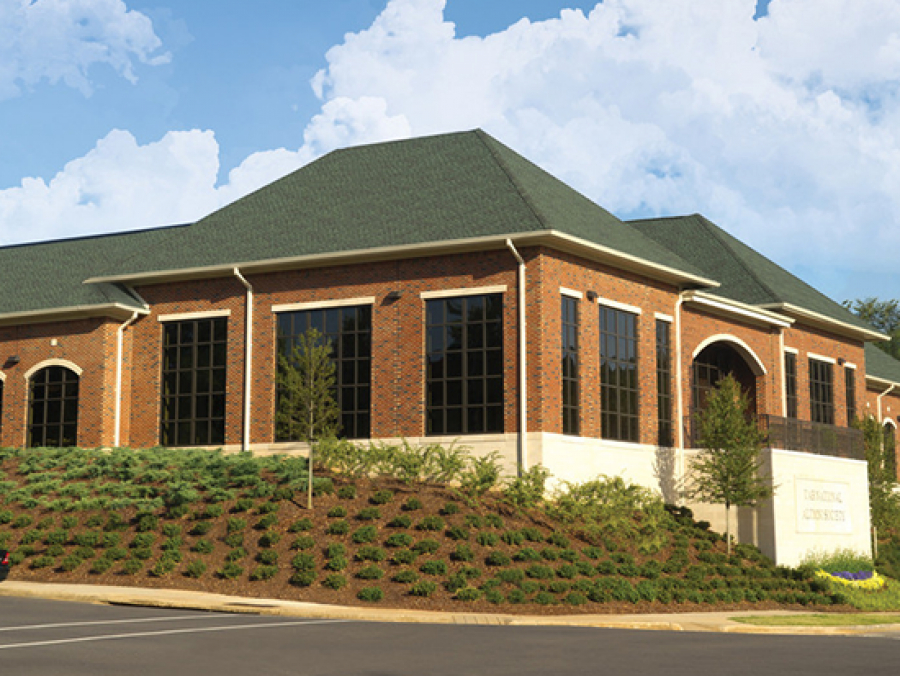 Celebrate Darwin Day 2024 with UAB’s Department of BiologyHosted by the UAB Department of Biology, Darwin Day 2024 will be an opportunity to learn about current UAB research and listen to keynote speaker Athena Aktipis, Ph.D., host of the podcast “Zombified.”
Celebrate Darwin Day 2024 with UAB’s Department of BiologyHosted by the UAB Department of Biology, Darwin Day 2024 will be an opportunity to learn about current UAB research and listen to keynote speaker Athena Aktipis, Ph.D., host of the podcast “Zombified.” -
 Learn about the civil rights movement in Atlanta and Birmingham in a virtual panel Jan. 17Speakers for “A Tale of Two Cities: Atlanta and Birmingham During the Civil Rights Movement” will shed light on how city governments, civil society leaders and urban geographies can advance or obstruct racial justice and human rights.
Learn about the civil rights movement in Atlanta and Birmingham in a virtual panel Jan. 17Speakers for “A Tale of Two Cities: Atlanta and Birmingham During the Civil Rights Movement” will shed light on how city governments, civil society leaders and urban geographies can advance or obstruct racial justice and human rights. -
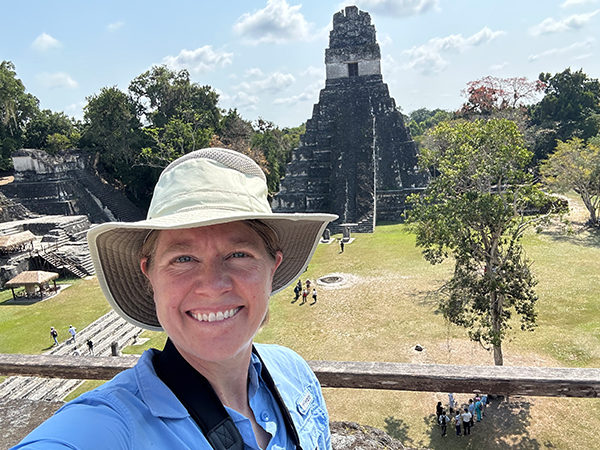 2023 recipient of the Ireland Award for Scholarly Distinction is Sarah ParcakSarah H. Parcak, Ph.D., Professor in the University of Alabama at Birmingham’s Department of Anthropology, has been awarded the 2023 Caroline P.
2023 recipient of the Ireland Award for Scholarly Distinction is Sarah ParcakSarah H. Parcak, Ph.D., Professor in the University of Alabama at Birmingham’s Department of Anthropology, has been awarded the 2023 Caroline P.